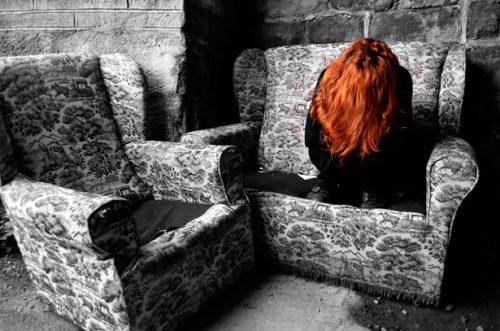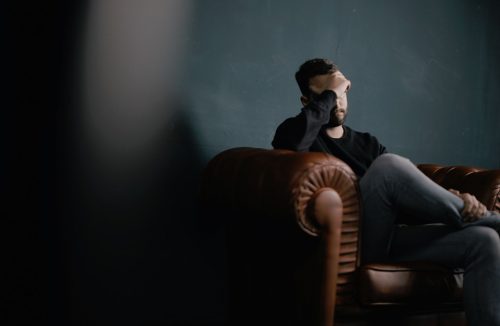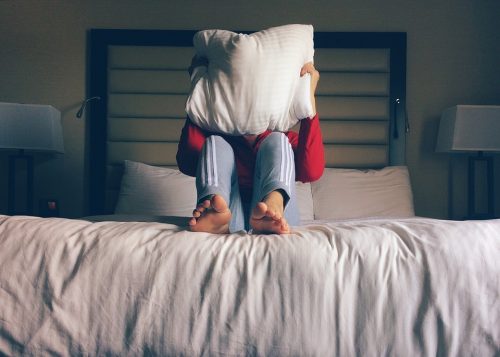It is no surprise that depression can often get misunderstood. That is because people rarely talk about it. That even if a lot of individuals know the condition is prevalent; they ignore and sometimes don’t do something to address it. That explains why healthcare professionals, such as psychologist entirely want to help out. There is this eagerness to explain the psychology of depression to aid the stigma of mental illness.

One out of ten individuals worldwide experiences some diagnosable depression. That is pretty alarming, to be honest. Considering its signs and symptoms are sometimes misdiagnosed, things can get pretty much overwhelming. Yes, everyone experiences sadness from time to time. However, not because someone is sad; it does not mean he has a mental illness. So, when does the condition tip the scale? When can we call the psychological crisis as a depressive disorder?
What Is With Depression?
“Depression is not a weakness of character, laziness, or a phase. Tough love, like telling someone to ‘buck up’ or ‘try harder,’ doesn’t work, and worsens the illness,” says Deborah Serani, PsyD.
The Diagnostic and Statistic Manual that mental health professionals use to diagnose a condition defines significant depression as something that impairs an individual’s occupational, social, or other areas of functioning. There is this unexplained mood crisis, considerable weight loss or gain, fatigue or loss of energy, insomnia, psychomotor agitation, diminished ability to concentrate, as well as recurrent thoughts of death. People usually refer to major depressive disorder when they think about depression. However, there are other diagnoses. Apparently, in general, all of the depressive conditions share the same signs and symptoms. These include emptiness and sadness. There is the presence of physical and cognitive dysfunction as well. Overall, the state affects a person’s capacity to function for at least two weeks.
“Depression is serious. The World Health Organization ranks depression as the third most common burden of disease worldwide and projects that by 2030 it’ll be number one,” says Savvy Psychologist Dr. Ellen Hendriksen.

So What Causes Depression?
“The fact is, despite decades of research into this question, scientists at the U.S. National Institute of Mental Health and research universities around the world still don’t really know the cause of depression,” says John M. Grohol, Psy.D.
Unlike neuroscientist, psychologist places a lot of focus on social and cognitive factors that play a role in depression. They believe that what a person thinks will say something about his condition. That explains why there is a lot of particular questions that guarantee a result in finding someone susceptible to the disorder. Some of these questions are the view of the individual of himself and others, and the way he chooses to cope with problems.
Usually, depression comes from repeated failure in life. It includes failed decisions, disappointing results, and even mishandled relationships. There is this intense feeling of worthlessness and hopelessness. In unfortunate cases, there is an abandonment of self-trust and self-confidence. But we must understand that not everyone who faces difficulty life problems becomes depressed. The situation still varies from one person to another. However, prolonged exposure to stressors can entirely preempt depressive episodes. The condition can escalate quickly, especially to those individuals who do not have a strong foundation of social support such as friends, family, or concerned community.
On the cognitive side, depression, specifically centers in negativistic thinking. It is the condition’s foundation. It is a takeover of an individual’s thoughts that is overly critical and pessimistic. With that, there is often an expectation of disappointment and failure at every turn of life events. The co-existence of these two unwanted mental states make a lot of people wonder what comes first. But research shows that even an optimistic individual is also at risk of depression after exposure to too much stressful life events. Therefore, it seems like the negativistic thinking is more likely a result of the depressive disorder and not the other way around.

Is There A Solution To The Condition?
Of course, there is. Like so many other disorders, comprehensive research says that depression is treatable. As long as there is a combination of medication and therapy, a positive result is achievable. These two are more equally effective in treating depressive symptoms. Although, therapy promotes longer-lasting effects after completion compared to medication alone. Yes, medicine does an excellent job of managing the signs and symptoms of depression. But therapy is the one that is best in addressing the condition’s underlying causes. With a specific type of therapy, there is knowledge of what leads an individual to feel persistent loneliness and sadness.
Depression is an ongoing mental health battle that most of us are experiencing. There are things that we think we know about it but seem complicated to address adequately. It is entirely essential that we don’t just rely on what we know and should start learning and understanding more of it.



